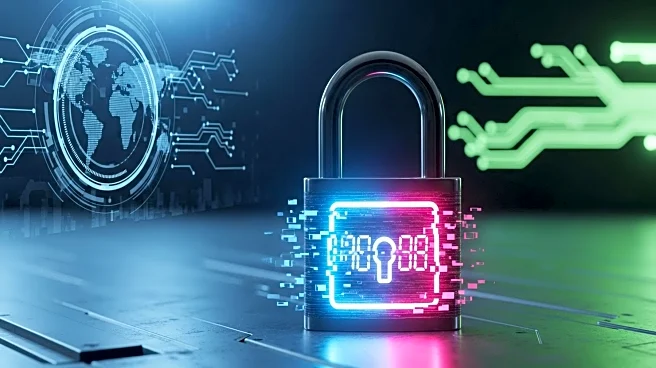What's Happening?
A recent survey by the Chartered Institute of Procurement and Supply (CIPS) reveals that nearly a third of business leaders have reported an increase in cyber-attacks on their supply chains over the past six months. This rise in cyber threats has become a significant concern for procurement managers across various industries, including manufacturing, energy, and technology. High-profile companies such as Jaguar Land Rover, Marks & Spencer, and the Co-op have suffered substantial financial losses due to these attacks. The survey indicates that 29% of managers reported attacks on companies within their supply chains, highlighting the growing threat to global business operations.
Why It's Important?
The increase in cyber-attacks on supply chains underscores the vulnerability of interconnected global trade networks. These attacks not only disrupt business operations but also pose significant financial risks, as seen with Jaguar Land Rover's estimated £120 million loss in profits due to a month-long shutdown. The situation is exacerbated by geopolitical tensions and tariff disputes, which have historically been major concerns for procurement managers. As cyber threats rival these geopolitical issues, businesses are compelled to prioritize cyber resilience to protect their operations and maintain consumer trust.
What's Next?
Organizations are expected to invest more in robust digital defenses to safeguard their operations. This includes reassessing their supply chain security measures and ensuring that their systems are resilient against potential cyber threats. The focus will likely shift from traditional IT department concerns to board-level priorities, as companies recognize the critical importance of cyber resilience in maintaining business continuity.
Beyond the Headlines
The interconnected nature of global supply chains means that a cyber-attack on one company can have ripple effects across multiple industries and regions. This highlights the need for a collaborative approach to cybersecurity, where businesses share threat intelligence and best practices to collectively enhance their defenses. Additionally, the ethical implications of cyber-attacks, such as data breaches and privacy violations, necessitate a reevaluation of corporate responsibility in protecting consumer information.











